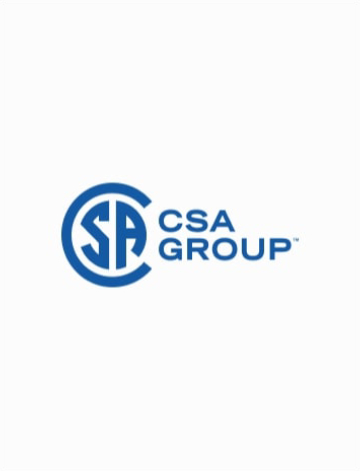CSA Preface
Standards development within the Information Technology sector is harmonized with international standards development. Through the CSA Technical Committee on Information Technology (TCIT), Canadians serve as the SCC Mirror Committee (SMC) on ISO/IEC Joint Technical Committee 1 on Information Technology (ISO/IEC JTC1) for the Standards Council of Canada (SCC), the ISO member body for Canada and sponsor of the Canadian National Committee of the IEC. Also, as a member of the International Telecommunication Union (ITU), Canada participates in the International Telegraph and Telephone Consultative Committee (ITU-T).
For brevity, this Standard will be referred to as CSA ISO/IEC 7811-7 throughout.
This Standard supersedes CAN/CSA-ISO/IEC 7811-7:15 (adopted ISO/IEC 7811-7:2014). At the time of publication, ISO/IEC 7811-7:2018 is available from ISO and IEC in English only. CSA Group will publish the French version when it becomes available from ISO and IEC.
The International Standard, was reviewed by the CSA TCIT under the jurisdiction of the CSA Strategic Steering Committee on Information Technology and deemed acceptable for use in Canada. From time to time, ISO/IEC may publish addenda, corrigenda, etc. The TCIT will review these documents for approval and publication. For a listing, refer to the Current Standards Activities page at standardsactivities.csa.ca. This Standard has been formally approved, without modification, by the Technical Committee and has been developed in compliance with Standards Council of Canada requirements for National Standards of Canada. It has been published as a National Standard of Canada by CSA Group.
Scope
This document is one of a series of standards describing the characteristics for identification cards as defined in the definitions clause and the use of such cards for international interchange.
This document specifies requirements for a high coercivity magnetic stripe (including any protective overlay) on an identification card and encoding technique. It takes into consideration both human and machine aspects and states minimum requirements.
Coercivity influences many of the quantities specified in this document but is not itself specified. The main characteristic of the high coercivity magnetic stripe is its improved resistance to erasure. This is achieved with minimal probability of damage to other magnetic stripes by contact while retaining read compatibility with magnetic stripes as defined in ISO/IEC 7811-2.
This document provides for a card capacity of approximately 10 times that of a card conforming to ISO/IEC 7811-6. The number of tracks has been increased to 6, each track being approximately half the width of tracks conforming to ISO/IEC 7811-6, located so that readers designed to read these high density tracks will also be able to read cards conforming to ISO/IEC 7811-2 and ISO/IEC 7811-6. Data is encoded in 8 bit bytes using the MFM encoding technique. Data framing is used to limit error propagation and error correction techniques further improve reliability of reading.
It is the purpose of the ISO/IEC 7811 series of standards to provide criteria to which cards shall perform. No consideration is given within these standards to the amount of use, if any, experienced by the card prior to test. Failure to conform to specified criteria is negotiated between the involved parties.
ISO/IEC 10373-2 specifies the test procedures used to check cards against the parameters specified in this document.
NOTE Numeric values in the SI and/or Imperial measurement system in this document may have been rounded off and are consistent with, but not exactly equal to each other. Using either system is correct but intermixing or reconverting values can result in errors. The original design was made using the Imperial measurement system.


